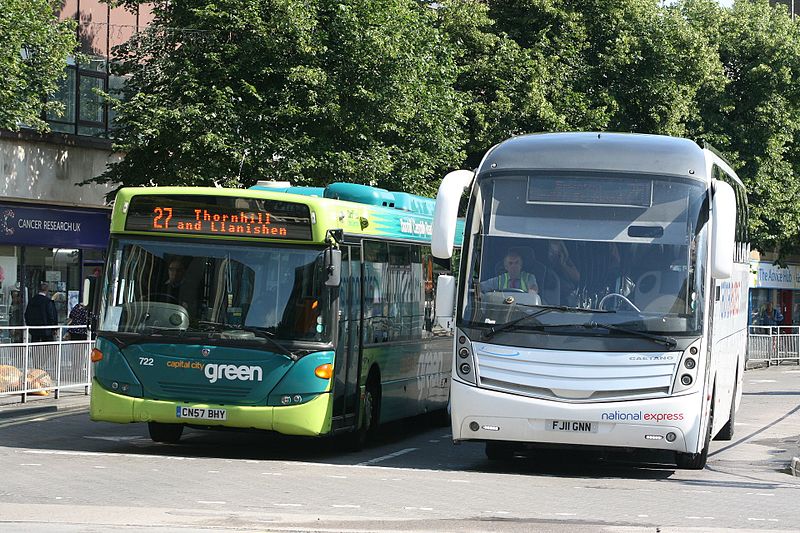Our blind accessibility assessor, Alan Sleat, shares his experiences of travelling by bus or coach.
Trusting The Provider
As a blind person, along with some bad experiences, the trust in using these modes of transport, along with the rest, is needed. My objective is to get myself there. Then, it is up to the assistance you have booked to get you where you need to go.
However, this is more easily said than done. As I have said before, I have been put on to a coach by a booked assistance and ended up having a two-hour journey before starting again. Now apart from the obvious, it is frustrating, as the aid has to be booked at least 24 hours before you want to travel on that mode of transport. So, no on-the-whim day out if you need assistance to travel.
The Drivers
Likewise, with bus drivers. You get excellent and helpful drivers, but then, sometimes you don’t – and end up going on a longer trip than expected!
There have been times when the driver has forgotten to tell me that I am at my desired stop, after I have asked them to make me aware of it. Although the stop may not be that far from where I need to be, the route will be totally different, making it very difficult to get where I needed to. Yet again, making me rely on other people, if there are any around, to get me back on track.
Apologetic Bus Driver
Saying that I did have an experience on a bus when it went straight passed my stop as I was the only one on it at the time. I only realised this as the road did not feel right and I shouted out, and the driver apologised and had to go around the next roundabout and go back on his self.
Experience of Accessibility on Coaches
In the case of coaches, most drivers have been supportive when I have needed a pit stop, as you can imagine, it is bad enough to find the toilets when you can see, let a though if you can’t see.
As a blind person, once I am on the coach and the driver has helped when we have stopped, I have no accessibility issues. I am sure some people could tell you some. Usually the driver will call out a stop, and they should know that you need assistance as you booked it over 24 hours ago.
However, there are many different people with different types of assistance that are needed. I am trying to think back to when I could see, now that is a little time back now, but I can’t work out how a person that is a wheelchair user can get on to a coach?
I did not know how complicated it was, after researching it. However, for all coach users, the government states that all coaches should be accessible for all by 2020.
Wheelchair Access on Coaches
There are apparently easily constructed ramps that can be used to assist a wheelchair into the coach, but as I said, the steps up and around having ramps on and then going up them in a wheelchair sounds scary to me. However, if a ramp is needed, then a ramp it is.
If you don’t need assistance to travel by bus, or coach, then next time you travel, have a look around and have a think on some disabilities and how they will cope, with, or without assistance.
Cars Can Prevent Bus Access
Now the bus can be accessible, with the bus either dropping the step to the path, or having a raised bus stop, but this is no good if cars are parked where the bus stop is and now there is at least a 7ft gap. A blind person will not know where the bus is, to get on, or where the path is when getting off, or if the bus parks up further up or down the road, then this may disorientate the person and then the rest of the journey may be problematic. So the question may be: not is the mode of public transport accessible, but is the public aware of accessibility?
Therefore, perhaps this is where disability awareness is needed for everyone, as throughout someone’s life, they, or someone they know will have a disability sometime in their life.
Now, on a coach the driver is almost next to a person who is occupying the seats at the front of the coach for people with a disability. However, the train is a different matter. Read my previous blog on travelling by train
Travelling by Bus or Coach Additional information:
Transport if you’re disabled: Cars, buses and coaches – gov.uk
The law says bus and coach drivers must give reasonable assistance to disabled people, eg helping them get on and off the bus or coach. This doesn’t mean physically lifting passengers or heavy…
Accessibility – Transport Focus







